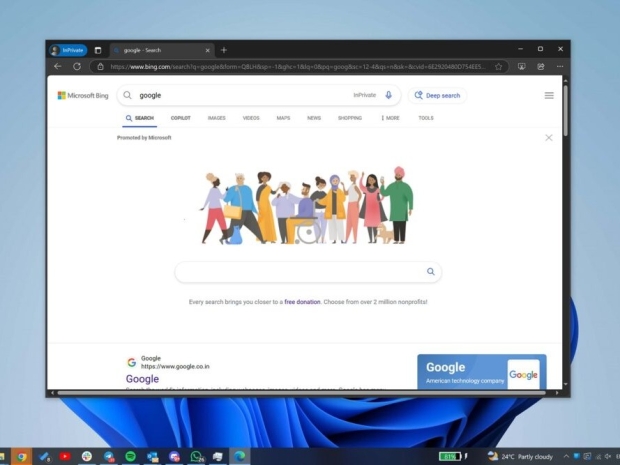This change, first reported by Windows Latest, involves making Bing's interface mimic that of Google when users search for "Google" on Bing. This move is seen as a strategy to prevent users from switching to Google's search engine.
Microsoft Edge, the default browser on Windows 11, uses Bing as its default search engine. This is like how Chrome on Android defaults to Google. Typically, users who prefer Google would search for it in the Edge browser's address bar, which is powered by Bing, and then click on the Google link, potentially never returning to Bing. Some might even go as far as changing their default search engine to Google.
In what can be perceived as a sneaky Volish strategy, Microsoft appears to be attempting to reduce the bounce rate (the number of users navigating away from Bing).
According to Windows Latest, when you search for "Google" on Bing, you are now greeted with an animated celebration and a message. The layout of this search page is strikingly similar to Google's clean design, featuring a search bar in the middle and simple illustrations.
Windows Latest notes that this new design seems to appear when users are logged out of their Microsoft account and search for Google on Bing. This approach might make users feel like they are using Google because of the familiar minimalist design, potentially confusing them at first glance.
However, if users closely observe the animation, they will notice it is an attempt to emulate Google's user interface. Bing's top search bar remains hidden unless you scroll down. This tactic appears to be a clever way to capture users' attention.
Previously, searching for Google on Bing would simply show a small Bing search bar and a regular link to Google. This new design, however, could potentially keep users on Bing if they are just looking for a search engine without any specific preference.
In addition to the Google-like design, there is also a message beneath the search box: "every search brings you closer to a free donation. Choose from over 2 million nonprofits." This message could further engage users and encourage them to stay on Bing.




